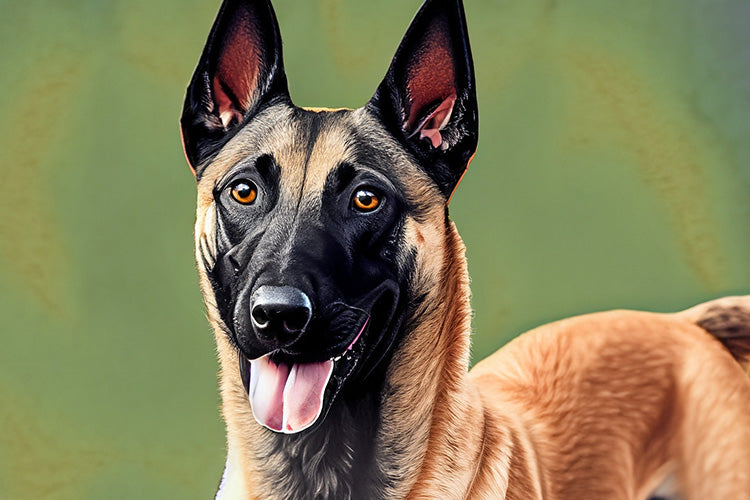After conducting cognitive tests on more than 1,000 specimens from 13 dog breeds that are known for their intellectual prowess, researchers at the University of Helsinki in Finland determined that the Belgian Malinois is the smartest dog breed of all.
Among the canine breeds represented in the 2022 study with these findings, the Belgian Malinois earned outstanding points for solving problems and understanding human needs. The report was published in an article in Nature and given the spotlight by online newspaper AS.
The dogs that took part in this research were subjected to ten tasks that were designed to measure their cognitive and behavioral responses. Metrics included logical reasoning and cognition, the ability to read human gestures, and the degree of independence that the dogs have.
For instance, to test the latter quality, the dogs were given a problem that was impossible for them to solve on their own. Then, they were observed to see whether or not they would ask their human companions to help them find a solution to the said problem.
The Border Collie and the old German breed Hovawart came second and third after the Belgian Malinois in the ranking for cognitive ability. Notable behavior was also observed among the English Cocker Spaniels that took part in the study, as they displayed thoroughness and curiosity when exploring novel environments.
What Standards Do People Use to Measure Intelligence in Dogs?
There are several reasons people are interested in determining the level of intelligence of their canine companions. Some people, for instance, can have a need or preference for dogs that are easy to train and can quickly adapt to changing environments. Intelligence can also be a criterion for choosing dogs for particular roles, such as joining search and rescue teams or working closely with humans as service dogs. Meanwhile, pet owners and animal behaviorists may be interested in determining a canine companion’s intelligence level to determine whether they are giving enough mental stimulation to the animals under their care.
Several standards and methodologies are commonly used to measure the intelligence of dogs, each focusing on different aspects of cognitive abilities and problem-solving skills. Some of the most widely recognized standards include:
1) Stanley Coren's Intelligence Criteria
Stanley Coren, a psychologist and author, developed a popular method for assessing the intelligence of dogs based on obedience and working intelligence. His criteria rank breeds according to their ability to learn new commands and obey them upon first hearing. This method emphasizes obedience and responsiveness to commands as indicators of intelligence.
2) Breed-Specific Standards
Some organizations and breed clubs develop intelligence standards tailored to specific breeds based on their historical roles and characteristics. For example, herding breeds may be evaluated based on their ability to perform tasks related to herding and livestock management, while retrievers may be assessed on their ability to retrieve objects and work closely with humans.
3) Working and Performance Trials
Dogs participating in working or performance trials, such as agility competitions, obedience trials, and scent detection trials, are often evaluated based on their ability to perform specific tasks and solve practical problems. These trials assess a dog's ability to follow instructions, navigate obstacles, and demonstrate agility, obedience, and problem-solving skills in real-world scenarios.
4) Observational Assessments
Observational assessments conducted by trainers, behaviorists, or researchers may involve observing and documenting a dog's behavior in various contexts to assess their cognitive abilities, problem-solving strategies, and social interactions. These assessments may include tasks such as object permanence tests, spatial reasoning tasks, and social cognition tasks.
5) Cognitive Testing
Cognitive testing involves administering standardized tests or tasks designed to measure specific cognitive abilities, such as memory, learning, reasoning, and spatial awareness. These tests may include tasks such as object discrimination, reversal learning, and spatial navigation tests, which assess different aspects of cognitive functioning in dogs.
Overall, measuring the intelligence of dogs involves assessing a range of cognitive abilities, problem-solving skills, and behavioral traits across various contexts and tasks. Different standards and methodologies provide valuable insights into different aspects of a dog's intelligence, helping to understand and appreciate the diverse cognitive capabilities of canine companions.
Providing Dogs with Healthy Mental Stimulation with Custom Toys from PrideBites
To live happy, healthy, and holistic lives, dogs require adequate mental stimulation as well as physical training. No matter your dog’s breed, it’s possible to build their intelligence and keep them mentally engaged by presenting them with many opportunities to investigate and interact with the world around them.
If you have a business that targets pet owners or the members of the pet industry, you can contribute to making the world a more exciting one for dogs by offering high-quality custom dog toys. You can design or order wholesale custom dog toys, puzzles, and other pet merchandise from PrideBites and make it much easier for your customers to keep their canine companions mentally and physically engaged.
Order custom dog merchandise from PrideBites today. Get started by checking out our Start a Project page, or take a look at our catalog for inspiration!
